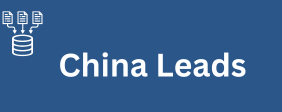The future of email, then, isn’t about its disappearance, but its evolution. We’re already seeing the integration of artificial intelligence and belgium phone number list machine learning transforming the inbox experience. Imagine AI tools that intelligently prioritize your most important emails, summarize lengthy
How Email Reshaped Our World and Still Reigns
Before the constant chatter of social media feeds and instant messages, there was email. It was a silent revolution, a simple yet profound innovation that fundamentally altered how we communicate, work, and connect across distances. Born from the early days of the internet, email democratized long-distance communication, making it driving local engagement with neighborhood-specific offers ccessible to anyone with an internet connection, bypassing slow postal services and expensive phone calls. It became the backbone of early digital communities, facilitating scholarly exchanges and paving the way for e-commerce. Its brilliance lay in its asynchronous nature, allowing messages to be sent and received at convenience, transcending time zones and fostering a global exchange of ideas and information that was previously unimaginable for the common person.
Managing the Cost of Constant Connectivity
Yet, email’s widespread adoption has created a paradox: the more essential it becomes, the greater the burden it imposes. The sheer volume of emails aero leads received daily has transformed the once-efficient inbox into a source of constant overwhelm for many. This isn’t just about managing messages; it’s about managing attention. Each notification, each unread count, pulls us away from focused work, fragmenting our concentration and leading to a pervasive sense of being perpetually behind. The expectation of immediate responses, fueled by mobile accessibility, further blurs the lines between work and personal life, contributing to digital fatigue and burnout. This constant “always on” culture makes it difficult to truly disconnect, impacting our mental well-being and overall productivity.
